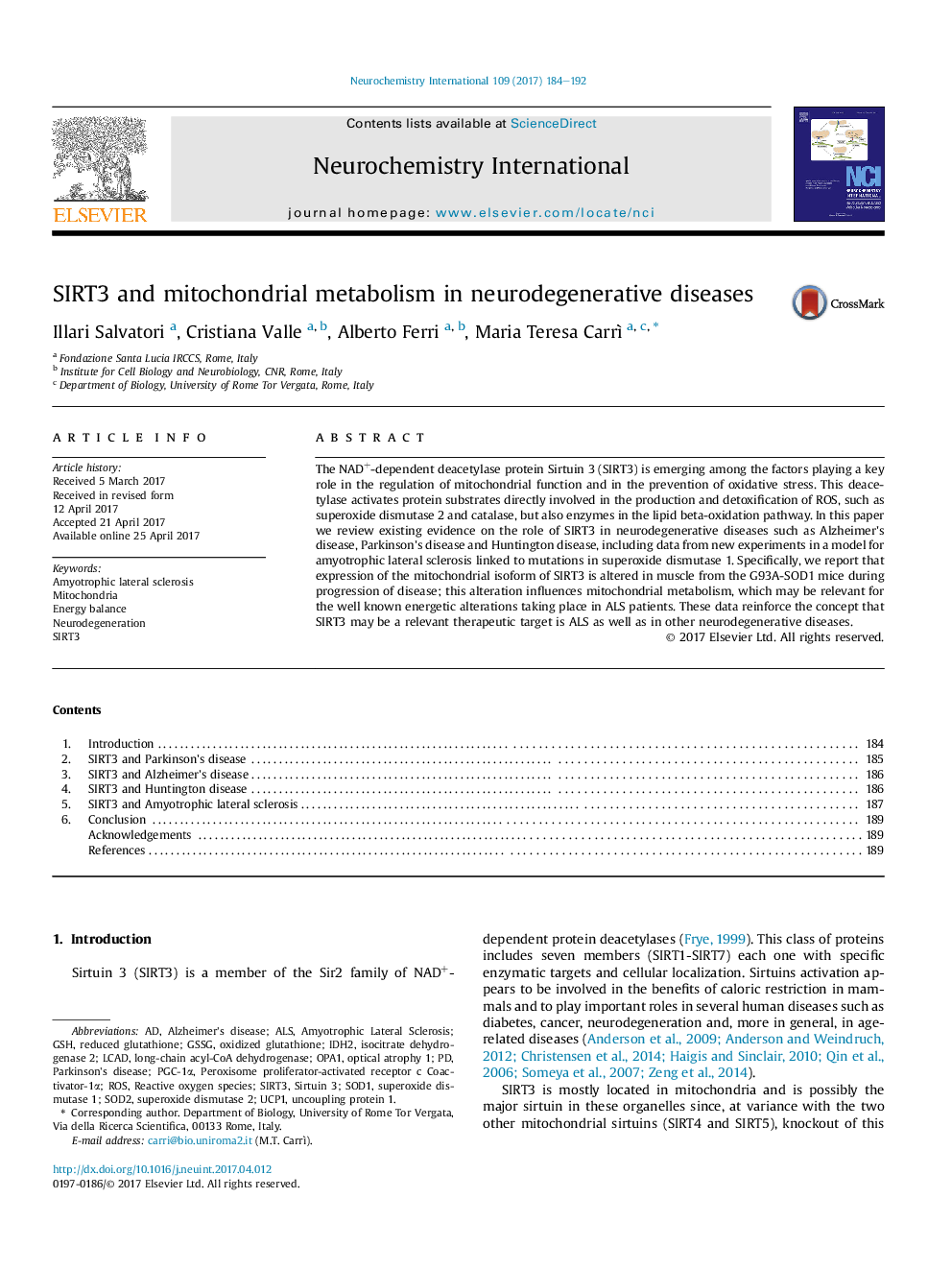| کد مقاله | کد نشریه | سال انتشار | مقاله انگلیسی | نسخه تمام متن |
|---|---|---|---|---|
| 5534680 | 1551266 | 2017 | 9 صفحه PDF | دانلود رایگان |

- Sirtuin3 plays a key role in the regulation of mitochondrial function and in the prevention of oxidative stress.
- We review evidence on the role of SIRT3 in AD, PD and HD, including data from new experiments in a model for ALS.
- Expression of the mitochondrial isoform of SIRT3 is altered in muscle from G93A-SOD1 mice, influencing mitochondrial metabolism.
The NAD+-dependent deacetylase protein Sirtuin 3 (SIRT3) is emerging among the factors playing a key role in the regulation of mitochondrial function and in the prevention of oxidative stress. This deacetylase activates protein substrates directly involved in the production and detoxification of ROS, such as superoxide dismutase 2 and catalase, but also enzymes in the lipid beta-oxidation pathway. In this paper we review existing evidence on the role of SIRT3 in neurodegenerative diseases such as Alzheimer's disease, Parkinson's disease and Huntington disease, including data from new experiments in a model for amyotrophic lateral sclerosis linked to mutations in superoxide dismutase 1. Specifically, we report that expression of the mitochondrial isoform of SIRT3 is altered in muscle from the G93A-SOD1 mice during progression of disease; this alteration influences mitochondrial metabolism, which may be relevant for the well known energetic alterations taking place in ALS patients. These data reinforce the concept that SIRT3 may be a relevant therapeutic target is ALS as well as in other neurodegenerative diseases.
Journal: Neurochemistry International - Volume 109, October 2017, Pages 184-192